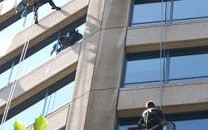For businesses based in Auckland or operating in the city there are a number of different forms of insurance required, but the most common is public liability insurance.
Public liability insurance helps to protect businesses of many different types in Auckland by insuring them against the financial consequences of property damage or personal injury. Many businesses would not survive such an event without the right cover in place.
Public Liability Requirements in Auckland
In most cases the requirements for Auckland businesses to hold public liability insurance are no different the requirements for other cities in New Zealand, however there are a few minor differences depending on the type of business.
Businesses based in Auckland also need to consider the public liability insurance requirements of any other areas that they operate in.
What is Public Liability Insurance?
Public liability was designed to protect businesses from the financial consequences of property damage and personal injury caused by the business to a third party. Accidental death is also covered under the policy.
It is important to understand that public liability insurance only covers you for loss or damaged to outside parties. It does not cover damage to your own property or that of your staff, nor does it cover personal injury or death to yourself or in many cases your staff.
Where you are responsible for damages relating to someone else’s financial loss, your insurance policy may cover the costs of the claim provided that it meets the guidelines of your chosen policy. You should refer to the policy wording to ensure the chosen policy meets all of your needs before proceeding with the cover.
Public Liability Cost in Auckland
Generally the cost of public liability insurance for businesses in Auckland is similar to the other cities, however there are a few exceptions. In some cases the cost may be higher or lower depending on the insurer’s claims history in the area.
The type and size of your business will also have a major impact on your public liability insurance cost, however this is generally not impacted by the city you are based in.
Public Liability Insurance Quotes
Businesses located in NZ can obtain quotes on public liability insurance from a variety of sources.
In years gone by many business owners dealt with local insurance agents or brokers, but today a growing number of businesses are using the internet to find the best quotes for their public liability insurance.
Here at Public Liability Insurance New Zealand we aim to assist businesses in Auckland and all over NZ by locating the best quotes available for their needs. This is made possible via our network of insurance experts located around the country.
If you would like to obtain a public liability insurance online quote we can certainly assist. Simply complete our online quote form and you will receive your quotes via email or phone depending on your preference.
For more information on public liability please follow the links on our website or contact us to be put in contact with an insurance professional.







